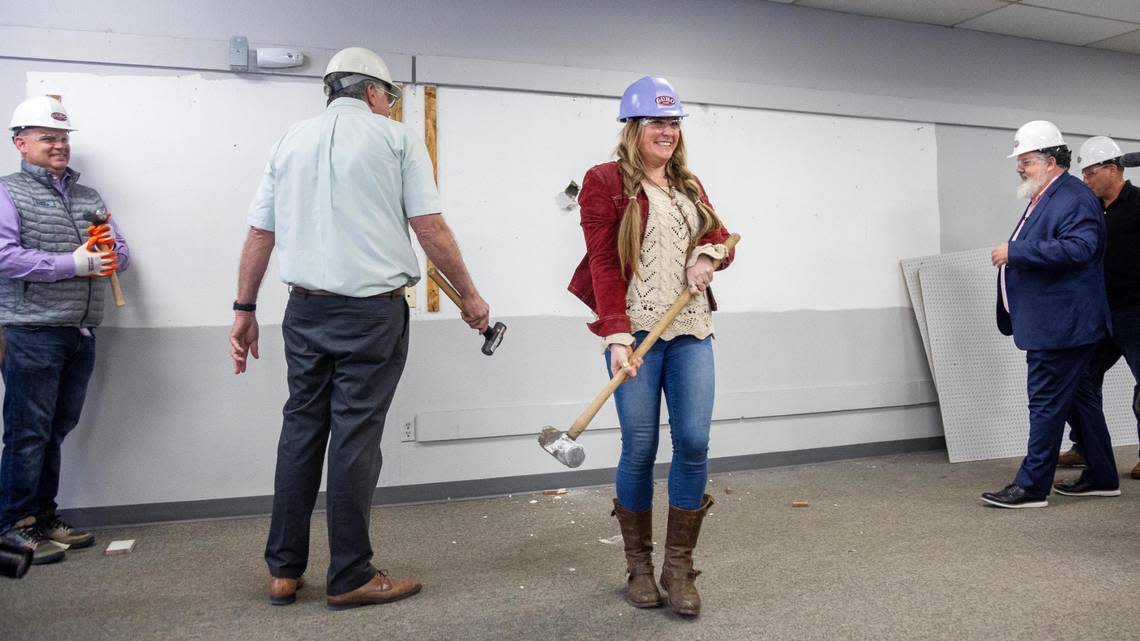A Boise neighborhood association wanted to stop a homeless shelter. Judge just ruled

An Ada County judge has denied the Veterans Park Neighborhood Association’s request to intervene in Boise’s decision to allow a homeless shelter to be built on State Street.
Ada County District Judge Cynthia Yee-Wallace on Tuesday ruled that the Boise City Council’s decision to permit Interfaith Sanctuary to move to a new location at 4308 W. State St. was not made erroneously. The neighborhood association had not sufficiently shown that neighbors’ property values would be reduced, or that residents of the neighborhood would be in more danger with the shelter present than they would if it were not, Yee-Wallace said.
“I am obviously really relieved and also super grateful,” Interfaith Executive Director Jodi Peterson told the Idaho Statesman. Peterson also thanked her attorney, Geoffrey Wardle, who she said donated his time to represent the shelter.
The neighborhood association can still appeal the decision, according to Idaho rules.
Over 100 people last year testified about the controversial plan to move the shelter to State Street. The current shelter is at 1620 W. River St.
After the City Council voted to allow the shelter’s new location last year, the neighborhood association asked the court to review the decision and argued the council had violated the law and the association’s due process rights. The group also said the plan to mitigate “adverse impacts” would not do so.
At a hearing in May, Yee-Wallace said the neighborhood association’s argument, if true, meant that “you could never operate a homeless shelter in the city.”
“Everywhere it goes, it would adversely impact the surrounding properties,” she said.
In response, a lawyer for the neighborhood association, Brian Ertz, said his argument was based on city laws, and that the city would need to update its code to allow congregate shelters.
What did the neighborhood association argue?
The neighborhood association had faulted Interfaith for not providing a security plan as part of its application and said that Boise’s decision to allow the shelter was not supported by “substantial evidence.” Yee-Wallace disagreed, and in her ruling said the court did not have the authority to intervene in the facts of the case.
“It is not the role of this court, sitting in an appellate capacity, to reweigh the evidence upon which the council based its decision,” Yee-Wallace wrote. “Rather, this court is required to look at the evidence to determine if it is of such sufficient quantity and probative value that reasonable minds could reach the same conclusion as the fact finder. Here, the evidence does.”
In her opinion, Yee-Wallace also said the homeless shelter was not required to submit a security plan. She noted that the City Council’s decision requires Interfaith to put together a shelter security plan and have it approved by the city.
Yee-Wallace noted that the neighborhood association had raised a valid legal point about future problems. In making their decision, City Council members had discussed that they could modify the 30 conditions included as part of their approval. But it’s unclear how the council could do that.
Yee-Wallace did not take up that issue in her ruling, instead noting that a court would rule on the issue if the city tries to revoke the shelter’s permit in the future, or if Interfaith were to file an application for a new conditional use permit.
In April, Interfaith held a groundbreaking ceremony for its new location. In an interview with the Statesman,Peterson said that she hopes to begin construction in July and be finished in fall 2024.
The neighborhood association and a spokesperson for Mayor Lauren McLean’s office did not immediately respond to requests for comment.

